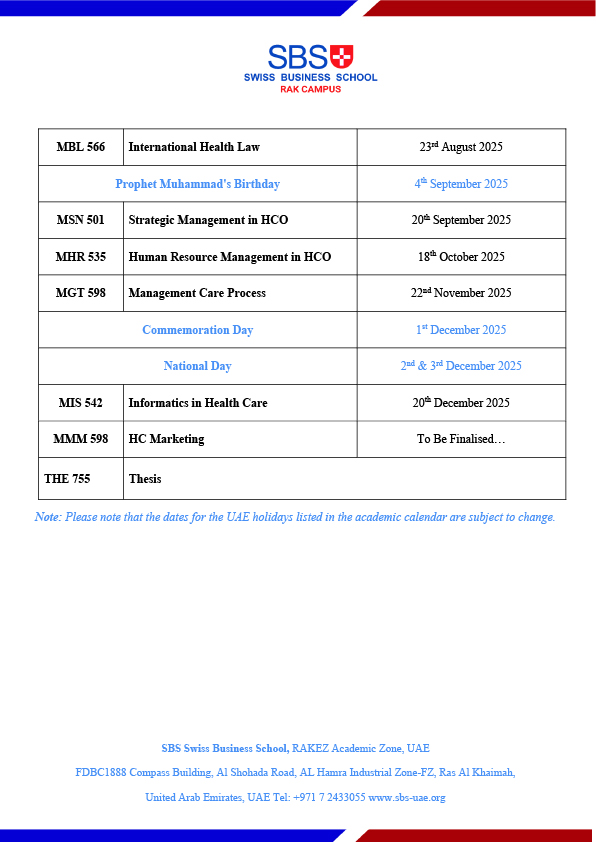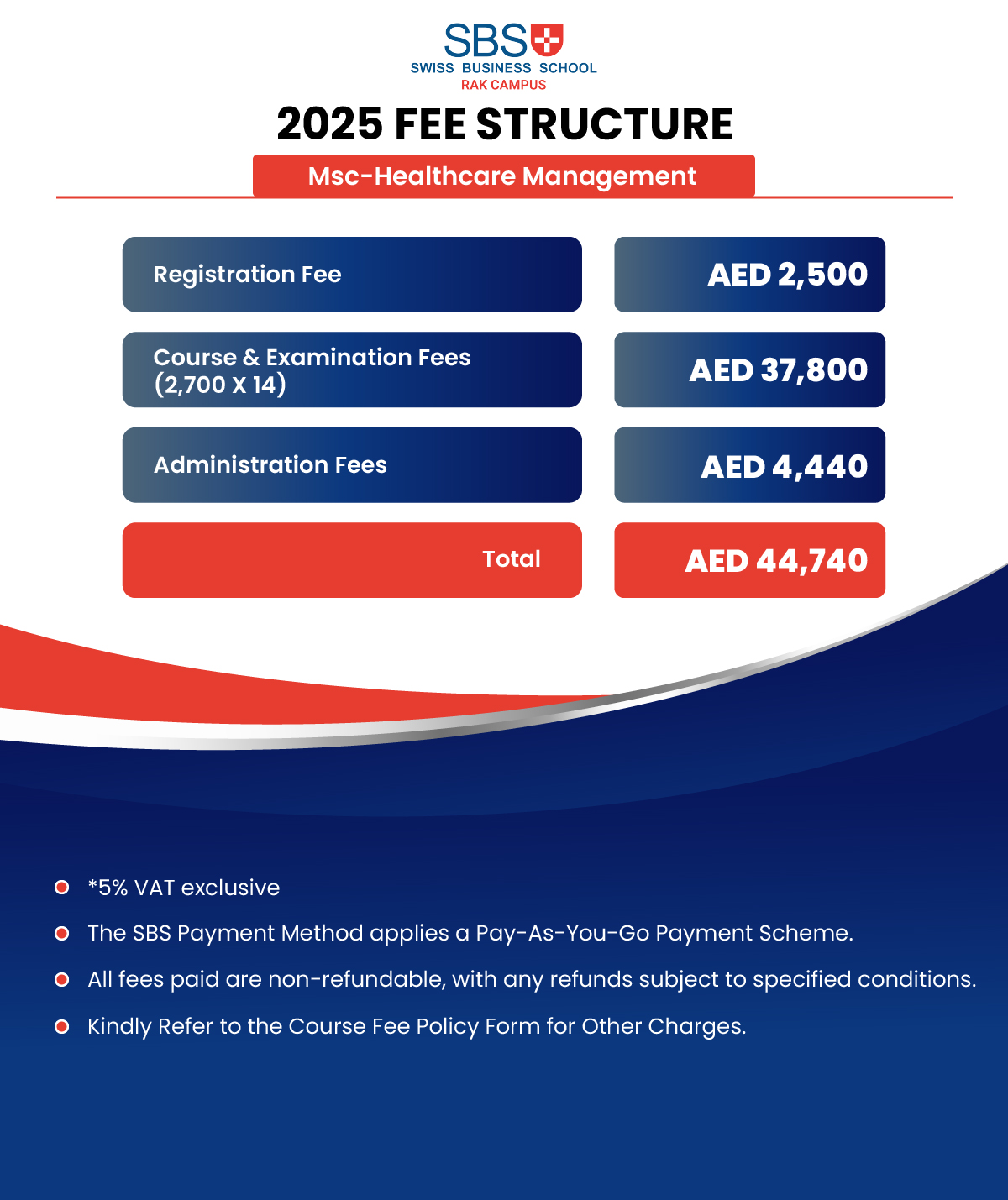Master of Science In Healthcare Management
Courses
academic calendar
Fee Structure
Admission criteria
Application Form
Courses
| MMM598 | HC Marketing |
| MOB502 | Sustainable Leadership & Organizations |
| FIN534 | Financial Management for Hospitals |
| MOP552 | Health Service Operations Management |
| ECO541 | Health Economics |
| MSN501 | Strategic Management in HCO |
| MHR535 | Human Resource Management in HCO |
| MIS542 | Informatics in Health Care |
| MBL566 | International Health Law |
| MPP544 | Project and Change Management |
| MGT598 | Management of Care Processes |
| MQQ553 | Quality & Risk Management |
| THE700 | Research Methods |
| THE755 | Individual Thesis Project |
academic calendar


Fee Structure

Admission criteria
- Filled out application form
- Complete CV
- Copy of Bachelor degree
- Copy of Bachelor transcripts (grade sheet)
- Proof of English Skills (TOEFL, IELTS, Cambridge, other) unless previous education was conducted in English
- Two reference letters (professional or academic) * Application fee
- Front-facing photograph, high quality in jpg/png/gif format
Notes
Admissions exam required for all MSc. Students must provide an English certificate such as IELTS – Minimum 6.0, TOEFL – Minimum 90 or Cambridge advanced certificate.Application Form
Application Form Link : LINK
